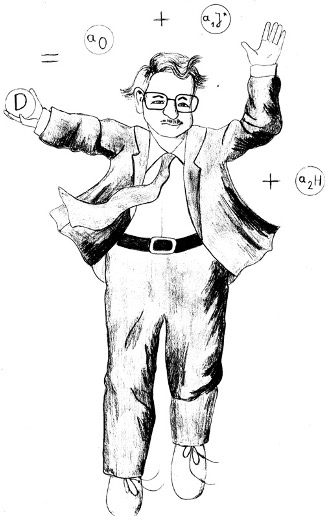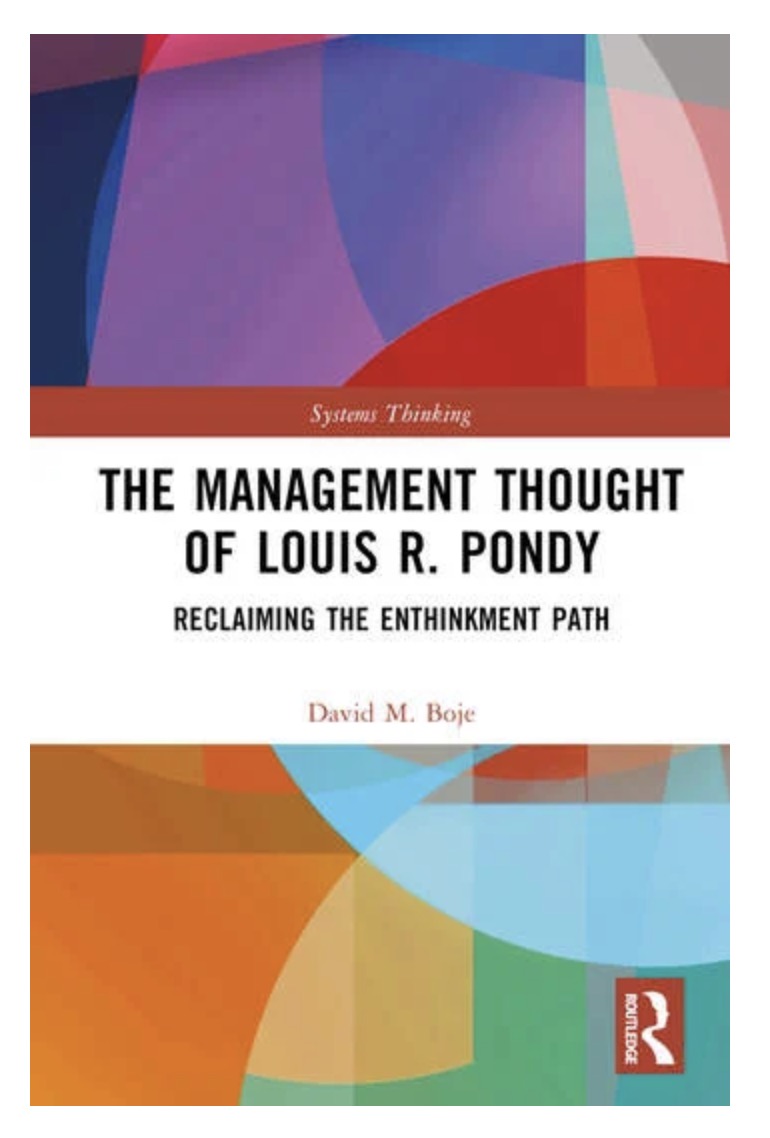“Where Being meets Becoming, and the Heart-Story expands beyond time itself.”

🧠 What Is Enthinkment?
In 1978, Professor Louis R. Pondy whispered a revolutionary word—Enthinkment—in conversation with Karl Weick while walking through the cornfields of Illinois. Though initially spoken in jest, this moment planted a seed that would take root decades later.
Where Weick’s “Enactment” focuses on how we shape reality through sensory action, Enthinkment invites us to explore the invisible terrain—the mental, quantum, and poetic dimensions of meaning-making.
It is a path of reflective questioning, not just of ideas, but of the very pathways by which organizations and individuals come to know and act.
📚 The Book: Pondy’s Enthinkment
by David M. Boje & Rohny Saylors
Now available — 72-page sample preview and full edition
This book charts the legacy of Lou Pondy, tracing his influence from conflict theory to open systems and beyond. It introduces Triple Loop Learning, integrates quantum storytelling, and shows how Enthinkment complements Enactment in reshaping management theory.
👥 About the Enthinkment Circle
We are not a classroom. We are not a seminar.
We are a living laboratory of transformation.
Each week, a circle of storytellers, thinkers, leaders, and seekers gathers to dive deep into:
- 🌀 Quantum transformation of thought
- 🔍 Reflective systems theory beyond open-systems
- 📖 Organizational storytelling and entangled meaning
- ❤️ Heart-centered inquiry and narrative ethics
📅 Weekly Circle Gatherings
🕐 Every Tuesday | 1:00 – 2:30 PM MT
🌐 Live on Zoom — Open to all inspired minds
🔗 JOIN ZOOM MEETINGMeeting ID: 895 079 5007 | Passcode: Boje
🔍 Enthinkment vs Enactment
| Concept | Enactment | Enthinkment |
|---|---|---|
| Originator | Karl Weick | Louis Pondy |
| Focus | Sensemaking via action | Meaning-making via reflection |
| Mode | Interaction with environment | Interrogation of assumptions |
| Reality | Co-created through doing | Revealed through quantum awareness |
| Role in Organizations | Adaptive behavior | Transformative awareness |
“Enactment makes the world real.
Enthinkment makes the world meaningful.” — David Boje
📚 Publications and Research
